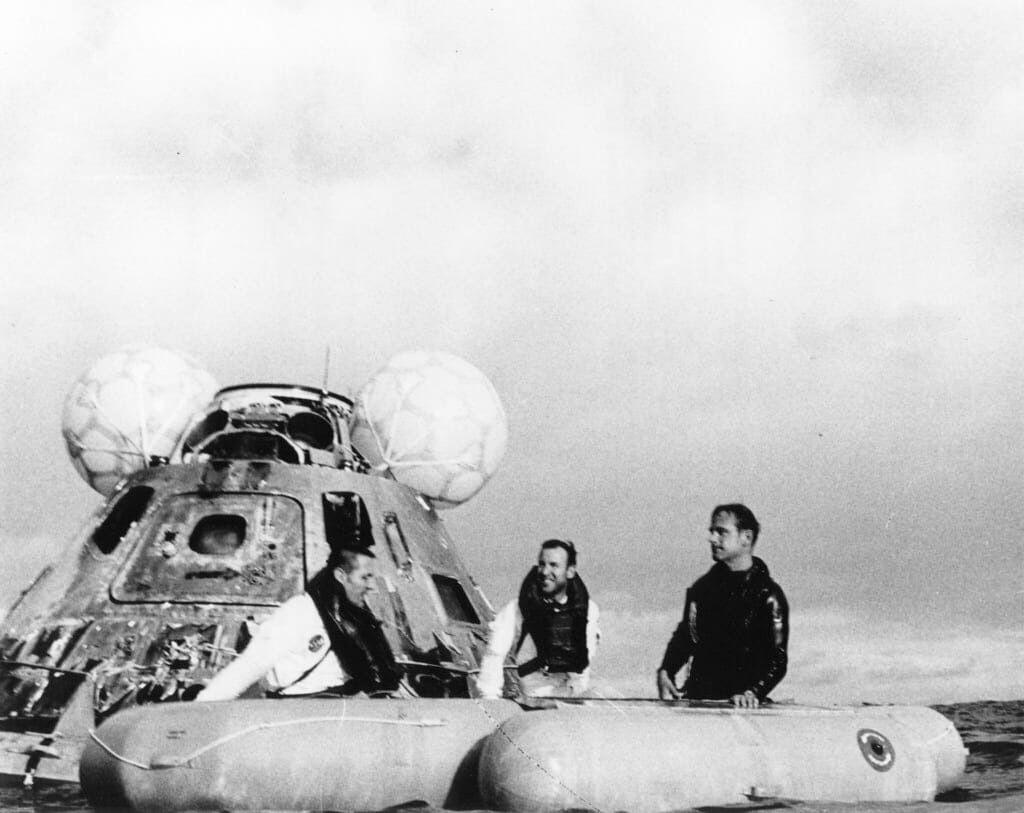Apollo 13 Hero Jim Lovell, Commander of NASA's Greatest Survival Story, Dies at 97
The legendary astronaut who turned space disaster into triumph through courage and quick thinking leaves behind an unmatched legacy of exploration and human resilience.
NASA's most celebrated commander and the face of humanity's greatest space survival story, Jim Lovell, has died at age 97. The veteran astronaut, who led the harrowing Apollo 13 mission that captivated the world in 1970, passed away peacefully surrounded by family, according to a statement released by his loved ones.
Lovell's death marks the end of an era for America's space program, as one of only 24 humans to travel to the Moon and among the last surviving heroes of the Apollo generation leaves us. His legacy extends far beyond his four space missions, embodying the spirit of exploration, quick thinking under pressure, and the triumph of human ingenuity over seemingly impossible odds.
The Making of a Space Legend
Born James Arthur Lovell Jr. on March 25, 1928, in Cleveland, Ohio, Lovell's journey to the stars began at the Naval Academy in Annapolis. After graduating in 1952, he became a test pilot before being selected as part of NASA's second group of astronauts in 1962.
Lovell's space career spanned the critical transition from the early Gemini program to the Moon-bound Apollo missions. He flew on Gemini 7 in 1965, setting an endurance record of 14 days in space, and commanded Gemini 12 in 1966, the program's final mission. His experience with long-duration spaceflight and spacecraft maneuvering made him an ideal choice for the ambitious lunar missions that followed.
Apollo 8: First Humans to Leave Earth's Orbit
Before Apollo 13 made him a household name, Lovell participated in one of humanity's most significant achievements as part of the Apollo 8 crew in December 1968. Along with Frank Borman and William Anders, he became one of the first three humans to travel to the Moon, orbit it, and return safely to Earth.
The mission's iconic "Earthrise" photograph and the crew's Christmas Eve reading from Genesis while orbiting the Moon provided hope and wonder during a tumultuous year marked by war and social upheaval. The successful mission proved that lunar travel was possible and set the stage for the Moon landing seven months later.
"Houston, We Have a Problem"
Apollo 13, launched on April 11, 1970, was intended to be Lovell's crowning achievement—a lunar landing mission that would make him one of only a dozen humans to walk on the Moon. Instead, it became his defining moment for entirely different reasons.
Fifty-six hours into the mission, an oxygen tank explosion crippled the spacecraft, turning a routine lunar mission into a desperate fight for survival. Lovell's famous transmission—often misquoted in popular culture as "Houston, we have a problem," though he actually said "Houston, we've had a problem"—alerted Mission Control to the crisis that would test every aspect of human space exploration.
Working with crewmates Jack Swigert and Fred Haise, along with hundreds of engineers on the ground, Lovell helped improvise solutions to seemingly impossible problems. The crew used the lunar module as a lifeboat, conserved power and water, and navigated using manual calculations when computer systems failed.
A Legacy Beyond the Stars
The successful return of Apollo 13 after 142 hours, 54 minutes, and 41 seconds in space became known as NASA's "successful failure"—a mission that didn't achieve its original goal but demonstrated the agency's ability to bring astronauts home against all odds. The story was immortalized in the 1995 film "Apollo 13," directed by Ron Howard and starring Tom Hanks as Lovell.
Following his NASA career, Lovell remained active in promoting space exploration and STEM education. He co-authored several books, including "Lost Moon," which served as the basis for the Hollywood film. He received numerous honors, including the Presidential Medal of Freedom and induction into the National Aviation Hall of Fame.
Remembering a True American Hero
Jim Lovell's passing represents the loss of not just an astronaut, but a symbol of American resilience and ingenuity. His career bridged the gap between the early days of human spaceflight and the modern era of space exploration, inspiring countless individuals to reach for the stars.
As private companies now routinely launch astronauts to space and NASA prepares for new lunar missions, Lovell's legacy reminds us that the greatest achievements often come not from flawless execution, but from the courage to persevere when everything goes wrong. His life exemplified the explorer's spirit that continues to drive humanity's quest to understand our place in the universe.
